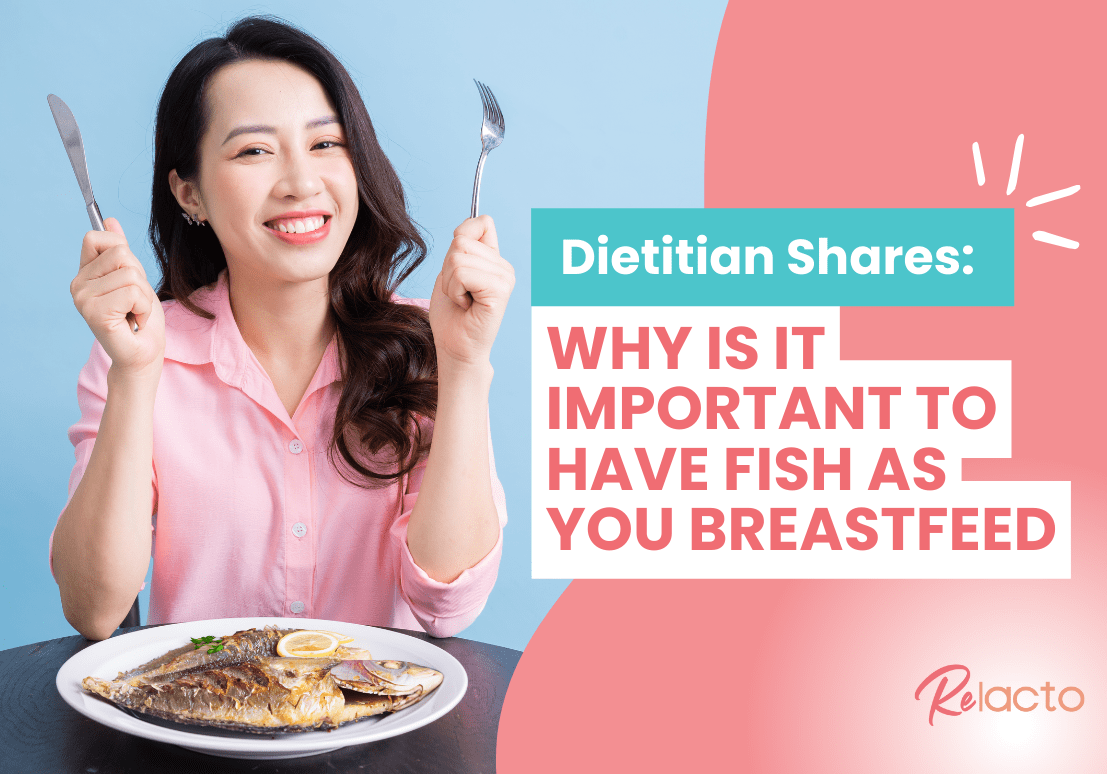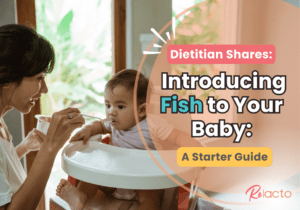Dietitian Shares: Why Is It Important to Have Fish As You Breastfeed

When mothers think of breastfeeding, they typically think of their milk supply. What is the next best lactation food and drinks to consume to increase the milk supply for their little one?
Often, many may overlook the importance of ensuring good quality breast milk which comes from practicing a good and balanced diet while breastfeeding.
There are many different key nutrients and bioactive compounds in breast milk that are influenced by the maternal diet. One of the foods that should be incorporated into your meals regularly at least 2 to 3 servings per week is fish.
Adequate fish intake in our diet as fish plays an important role in the human body. Fish contains essential nutrients that may not be easily available in other types of food.
Here are some of the nutrients that are important
Omega 3-DHA
Firstly Omega 3-DHA is not only essential for the baby in brain development and vision acuity. Adequate intake is also beneficial to minimise the risk of postpartum depression as well.
What many people need to understand is that Omega 3 from marine sources is more potent than plant-based sources as it is in the form of Omega 3-DHA instead of Omega 3-ALA. Omega 3-DHA is the active form that is used to support brain development and vision acuity in babies
Despite the high content of Omega 3 in some plant sources such as primrose oil, chia seeds and flaxseeds. These foods mainly contain Omega 3-ALA which needs to be converted into Omega 3-DHA before it is used by the body effectively. However, this conversion rate is as low as 1% thus less effective in providing the benefits of Omega 3-DHA to one’s health.
Iodine
Iodine is essential for thyroid hormone regulation in both mother and baby. Inadequate intake of iodine in mothers will translate into lower levels of iodine in the breast milk. Unresolved, babies may be at risk of developing iodine deficiency associated with cognitive and psychomotor impairments.
Iodine can be found in plant foods. However, the content of iodine in plant foods is dependent on the iodine content in the soil. Thus, if the soil is not fertile, then iodine content in the plants may be of lower content. On the other hand, marine sources are the richest source of iodine in the human diet. Incorporating fish and seafood adequately in the diet removes the need for you to obtain iodine via supplements.
Allergen Introduction
There are 9 different types of food allergens commonly found globally. One of these allergens is fish. It is best to include fish in your diet as early as during pregnancy, so that the fetus’s immune system can develop tolerance towards these foods. Continuing exposure to fish during breastfeeding will help to lower the risk of infants developing fish allergies later in life.
Growing up in an Asian city with Asian cuisines, many of our foods do contain fish ingredients in one form or another. Thus, if one develops an allergy towards fish, it can be challenging to find suitable foods to enjoy on a regular basis especially if one does not cook at home.
Some of the foods that are unexpected sources of fish are:
- Barbeque sauce
- Bouillabaisse
- Caesar Salad and Caesar dressing
- Worcestershire sauce which is a common ingredient used in marinating red meat in both western and Asian cuisine.
- Fish sauce in fried rice, instant noodles and marination of some Asian dishes
- Potato chips and other processed foods may contain fish or shellfish.

Summary
Optimizing nutrition while breastfeeding is beyond just incorporating lactogenic ingredients and lactation drinks into your meals for milk supply, it is also about eating well so that the nutrients, antibodies and bioactive compounds in your breast milk are optimized for your baby. Such a diet while breastfeeding is not impossible. It requires you to be intentional about what you eat and have a weekly menu plan, in this case, it is beneficial to start thinking of how much and how often you are having fish these days.
If you do not cook, the next time you are checking out the menu plan or lactation food in Singapore that you subscribe to, check how often they are serving fish. It should provide two to three servings of fish per week. On other days, there should be a variety of other proteins served throughout the week.







